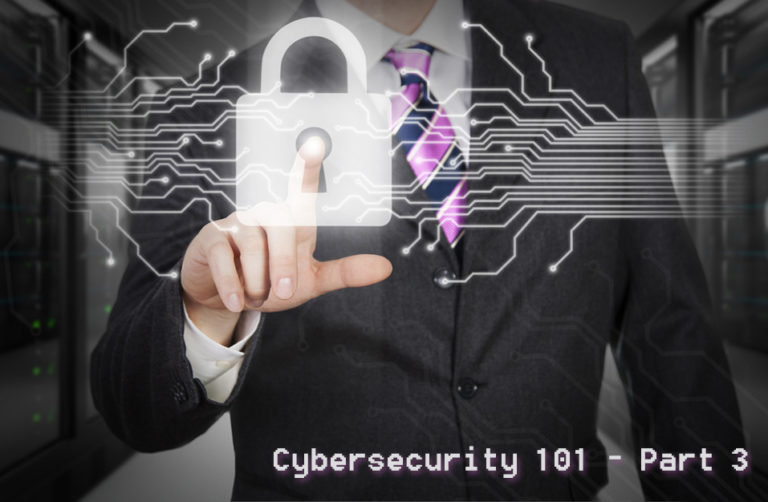Every year, thousands of companies fall prey to attacks on their network and equipment. No one is immune; from small businesses to large corporations, cybersecurity threats are a problem which must be taken seriously.
As the Internet of Things, cloud platforms, offsite storage, and other technologies gain in popularity, their susceptibility as a security breach point does, too. Everyone, including companies and individuals, should have risk management strategies and a strong cybersecurity culture in place. In this three-part series, we discuss tips for protecting yourself against cybersecurity threats in the workplace, the home, and on personal devices. In our first segment, we discussed the different types of cyber threats. Last week, we outlined specific cybersecurity practices for the workplace. We wrap up this week with some tips for personal cybersecurity.
Only access the Internet over a secure network.
Firewalls aren’t just for businesses! Hackers target individuals, too. Install a firewall on your home internet to increase your personal computer and data against cyber criminals. A firewall with a strong password should be your first line of defense.
Practice good cyber-hygiene.
Make sure operational and security software on your personal computer stays up to date. The patches provided in software updates address found vulnerabilities on your computer and can help protect you from a cyber-attack. Remember to create strong passwords for all of your online accounts. Make sure your password is 8 or more characters in length and includes a combination of upper and lower case letters, numbers, and special characters.
Be picky about your PIN
When selecting a Personal Identification Number (PIN) for your debit card or smart device, stay away from numbers associated with anniversaries, birth dates, address numbers, or other commonly known information. Also refrain from sequential digits, such as 1234, or all of the same number, ie – 1111. Choose a random number that is meaningful enough for you to remember, but not known by others.
Limit the amount of personal information you post.
Social media can make you vulnerable. Keep important information about yourself, including your address and phone number, your workplace, your schedule, etc., off social media sites. Keep vacation plans and pictures private until you’ve returned. Be aware of what your friends and family post online as well, and make sure they don’t include private information about you.
Use privacy and security settings.
Use site settings to limit the information you share with the general public online. The less you share about yourself, the safer you are.
Be smart with your mobile devices.
Your phone or tablet should be treated with the same, if not more, vigilance as your computer. Sensitive information like bank account numbers, social security numbers, or other personal information should never be stored on a mobile device. Download apps and data from trusted applications and reputable sources or marketplaces. Finally, remember that public Wi-Fi is also unprotected Wi-Fi! Stay away from websites which require passwords or personal information for access while you are using a public Wi-Fi connection.
Lock your smart devices
The screen lock is the first line of defense for your phone or tablet. Many mobile phones also have additional security options to erase your device data should it be lost or stolen.
Be suspicious of unknown links or requests sent through email or text message.
Phishing happens on mobile devices, too. Delete texts from people you do not recognize and don’t click on links or give out information to requests sent to your mobile device, regardless of who sent them.
A little cyber-safety goes a long way to protect you from hackers and criminals!
